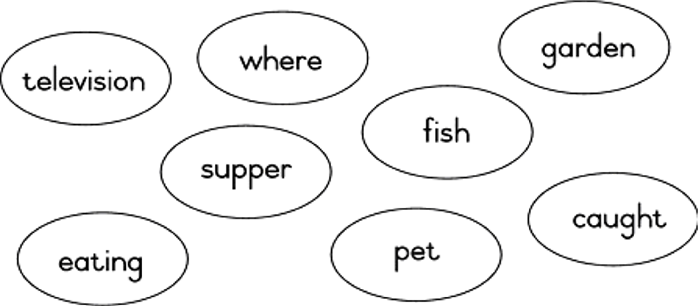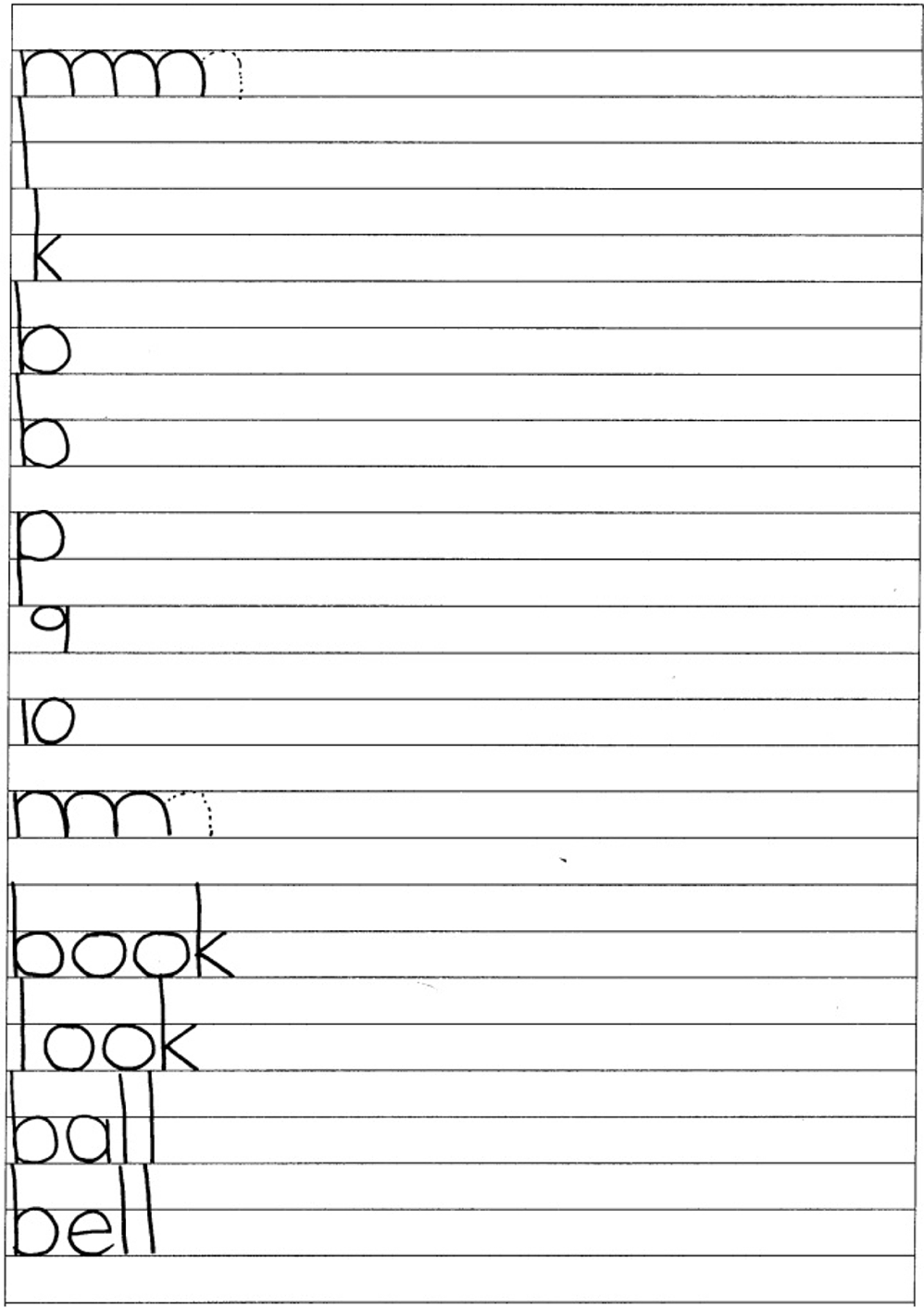| << Chapter < Page | Chapter >> Page > |
I see you!
“Willy, where have you been?” we all asked. “Look, you are wet!”
“I went down to the fish pond in the garden. Look what I have caught. A fish!
It’s not very big. Can I have it for my supper?”
“No, Willy, that is not a fish for eating,” said Mom. “That is our pet goldfish, called Gi-Gi. You cannot eat Gi-Gi, but I will make you fish for supper.” And she did!

| LO 1.3.4 | LO 3.5.10 |

| I went to the pond. | |
| This is Gi-Gi our . | |
| Willy likes to watch . | |
| Mom made fish for . |
| LO 3.4.1 | LO 3.5.10 |

| LO 3.4.2 | LO 4.6.2 | ||
| LO 4.5.1 | LO 6.3.1 |

| LO 4.1.1 | LO 4.1.2 | LO 4.1.3 |
| leg | ||
| lion | ||
| ball | ||
| bell | ||
| pipe |
| LO 3.4.3 | LO 6.2.1 |
Learning Outcome 1: LISTENING : The learner is able to listen for information and enjoyment and respond appropriately and critically in a wider range of situations.
Assessment Standard 1.1: We know this when the learner listens attentively to instructions and announcements, and responds appropriately;
Assessment Standard 1.3: We know this when the learner listens with enjoyment to short stories, rhymes, poems and songs from a variety of cultures, and shows understanding:
1.3.4 draws a picture of the story, and writes a few words about it;
Learning Outcome 3: READING AND VIEWING : The learner is able to read and view for information and enjoyment and respond critically to the aesthetic, cultural and emotional values in texts.
Assessment Standard 3.4: We know this when the learner recognises letters and words and makes meaning of written text:
3.4.1 reads simple written materials for different purposes;
3.4.2 reads own writing and the writing of classmates;
3.4.3 uses phonic and word recognition skills to decode new or unfamiliar words in context;
Assessment Standard 3.5: We know this when the learner develops phonic awareness:
3.5.10 recognises some high-frequency sight words.
Learning Outcome 4: WRITING : The learner is able to write different kinds of factual and imaginative texts for a wide range of purposes.
Assessment Standard 4.1: We know this when the learner writes with increasing legibility:
4.1.1 manipulates writing tools like crayons and pencils effectively;
4.1.2 develops letter formation and handwriting skills;
4.1.3 forms letters of the alphabet successfully;
Assessment Standard 4.5: We know this when the learner writes so that others can understand, using writing conventions:
4.5.1 uses letters to form single words and short sentences;
Assessment Standard 4.6: We know this when the learner begins to build vocabulary and starts to spell words so that they can be read and understood by others:
4.6.2 spells common words correctly;
Learning Outcome 6: LANGUAGE STRUCTURE AND USE : The learner will know and be able to use the sounds, words and grammar of the language to create and interpret texts.
Assessment Standard 6.2: We know this when the learner works with words:
6.2.1 leaves spaces between words;
Assessment Standard 6.3: We know this when the learner works with sentences:
6.3.1 writes simple sentences.

Notification Switch
Would you like to follow the 'English home language grade 1' conversation and receive update notifications?